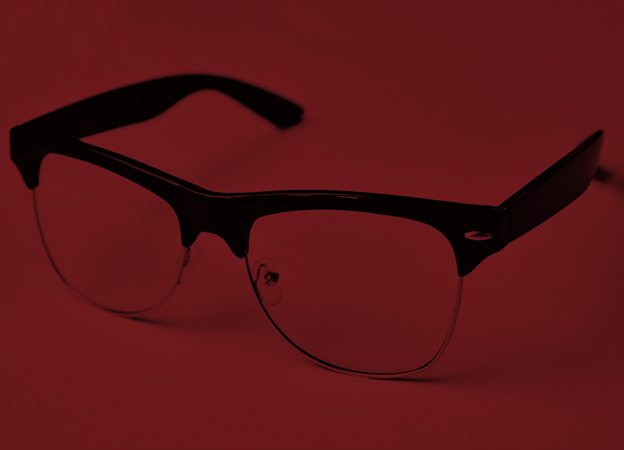Soft Contacts versus Rigid Contact Lenses
Mankind’s ability to improve eyesight has come a long way! Today, DaVinci’s idea of placing the head in a bowl of water makes us gasp. Descartes’ plan of viewing the world through a fluid-filled tube tightly held against the cornea sounds torturous. By 1888, when the first practical hard scleral contact lens was fitted by a Swiss doctor named Adolf Fick, it successfully corrected vision, but it was heavy, cumbersome, and covered the entire front of the eye. Worst of all, the lens deprived the eye of oxygen. This led to severe pain within hours of application – ouch!
Finding the Best Contacts to Meet Your Needs
Agony was an integral part of contact lens use for nearly a century after they were first made available. Extreme discomfort and pain plagued contact wearers until the early 1960s. At that time, Bausch and Lomb began offering comfortable, thin, soft hydrogel lenses. Today, significant advances in optics, comfort, and performance of both hard and soft contact lenses have made these useful eye-huggers a viable alternative to eyeglasses for most vision correction needs.
So, which type of contact lens is best for you? Read on to learn more.
Soft Contact Lenses
Thin, Comfortable & Convenient
Soft Contacts are, by far, the most widely worn contact lenses in the world today. They are thin, comfortable, nearly weightless, and available in an extensive range of options. Most are designed to be conveniently disposable on a daily, bi-weekly, monthly, or quarterly basis.
Constant Comfort
Soft lens designs are constantly evolving alongside advances in materials science. They are often impregnated with water and hydrating agents designed to help improve eye comfort. Most patients find soft contact lenses to be immediately quite comfortable and easy to use for all-day and extended wear.
Applications
Specialized soft contacts are available to correct most common visual deficits including:
Myopia (nearsightedness)
Hyperopia (farsightedness)
Presbyopia (age-related farsightedness)
Astigmatism (blurred vision)
Prone to Damage & Debris
Despite their numerous benefits, soft contact lenses are quite delicate. They may be easily torn. Soft contacts may also be susceptible to protein and debris accumulation. If not properly cleaned and disinfected, this contamination can lead to irritation, eye infections, and corneal damage. This is one reason why many contact wearers opt for daily disposables.
Rigid Gas Permeable Contact Lenses
Breathable, Durable & Long-Lasting
Hard contacts are, as the name suggests, rigid, durable, and designed to be used for up to 2-3 years (as long as your prescription has not changed). They are typically made of “gas-permeable” hard polymers. This breathability allows the cornea improved access to oxygen.
Ideal for Dry Eyes
Rigid gas-permeable lenses are often preferred by those with dry, irritated eyes, and individuals disappointed by the performance of soft lenses. Hard contacts do not dehydrate or dry out. In addition, they retain their shape, so they’re always in focus. Hybrid hard/soft lenses are available, also.
Applications
Most types of visual aberrations may be corrected with hard corneal or scleral lenses (these cover the entire sclera, or white of the eye). In fact, a custom pair of hard lenses may include several types of vision correction, and even tints to help address color blindness, visual acuity, and appearance. They may slow development of nearsightedness, keratoconus, and assist with corneal refraction therapy. Hard contact lenses can provide exceptionally crisp, precision optical refraction for all conditions corrected by soft contact lenses, as well as additional issues including:
Corneal Distortions & Irregularities
Multiple Vision Correction Needs
Complex Vision Issues
Structural Abnormalities of the Eye
Cleaning & Cost
Due to the extended wear period of rigid gas-permeable lenses, it is critical that they be cleaned and disinfected thoroughly – and often. Typically, hard contacts must be removed and maintained in this way each night. Because they may be custom molded and manufactured, some types of specialty hard contact lenses may cost significantly more than soft contacts, but most prescriptions can be accommodated with standard hard contacts that fit your budget. In some cases, they may even be more economical than soft contacts. It is important to take extra care to help avoid the especially unfortunate experience of losing a hard contact. With proper care, rigid gas-permeable contacts can provide superior vision and a great user experience.
Need Contact Lens Help?
Contact Wise Eyes Optical
Wise Eyes Optical has the answers you need. If your current eyeglasses or contact lenses are not working for you, it may be time to try something else. We fit our patients with contact lenses designed to improve vision while maximizing comfort. Contact us to schedule an appointment or learn more about our extensive selection of quality, affordable contact lenses. Call us at (717) 242-1915.


